I’m thrilled to have my literary agent, Charlotte Seymour from Andrew Nurnberg Associates, on the blog today, explaining something I am sure many aspiring writers often wonder, what exactly does a literary agent do every day?
Below, Charlotte reveals all…
 One of the best things about working as a literary agent is the variety that fills each and every day and night.
One of the best things about working as a literary agent is the variety that fills each and every day and night.
(I often wake up in the morning surrounded by pages from manuscripts I’m looking at, a published novel I’m reading for pleasure and probably a cookbook too – always good for browsing if you can’t get to sleep…)
It’s a common misconception that people who work in publishing spend all day reading; in fact, most of us do all our reading at home in the evenings and at weekends – otherwise, books would simply never make it onto readers’ shelves or kindles.
So exactly what does an agent do day to day?
Agents come in all shapes and sizes, and have varying interests and ways of working, but they’re by necessity protean, acting as an author’s reader, editor and mentor, their greatest champion and staunchest defender.
These are some of the key elements of my day to day work:
Discovering authors
Discovering and supporting writing is at the essence of what we do, and as with everything else about the job, we do it in a variety of ways. I always keep an eye on the unsolicited submissions coming in, for although the vast majority are blanket submissions rather than being targeted to my personal interests, there are gems to be found from time to time. Existing clients and contacts will also often recommend writers to us.

There are an ever-growing number of creative writing courses and writers’ festivals which agents are invited to attend, and while it’s by no means a requirement of getting published to undertake a costly MA or similar qualification, such courses do offer writers access to industry professionals and vice versa.
I make sure also to visit local writers’ groups and other book-related events, from launches to readings – you just never know who you might meet.
Finally, when it comes to non-fiction, I will regularly approach someone who is an expert in their field – whether a chef or a scientist – with a view to developing a proposal. So the process of finding new authors to work with is a very proactive one; occasionally, something special will land in your inbox, but more often than not, you have to go out and find it for yourself!
Developing an author’s work
Once I’ve signed up a new author, I will do whatever it takes to get the manuscript or proposal to the stage where I feel it is ready to show to editors. Sometimes, it’s a case of going through multiple drafts until the work feels as polished as I know how to make it. At other times, and with non-fiction in particular, you can take an idea and working proposal to editors and offer them more input on how they would shape and publish a project.
 Submitting to editors
Submitting to editors
When the material is ready, I’ll make an initial round of submissions to the publishing houses I think would be the best fit for the author. In some cases, a
book will sell very quickly at auction; in others, it’s a question of persisting for many months or even longer until you find the one editor who falls for the book. If that book doesn’t work, rather than giving up, you think about why it didn’t sell and then get working on something new with the author.
A year ago, at Strand Bookstore in New York, I saw a tote bag (every publishing girl and boy’s best friend) for sale bearing the well-known feminist slogan ‘Nevertheless she persisted’, and I always think this sums up my job. As an agent, you need endless perseverance – and often a bit of luck…
Negotiating a publishing deal
When a publisher, or several publishers, offer for a book, I will negotiate the best possible publishing deal for the author, not just in terms of the money being offered but also the publisher’s plans for how to edit, position and promote the book and the author. Sometimes in an auction, an agent will choose a publisher who offers slightly less money than another but is a better overall fit for the author.
The run-up to publication, and beyond…
Getting a publishing deal for an author is a hugely exciting moment, but it’s by no means the end of an agent’s job. From the moment we have a signed contract, in the run-up to and following publication, I will be regularly checking in with the publisher to ensure that everything is on track, finding out how many copies are being printed, what coverage the publicist has lined up, how the book is performing, and so on.
I will also be working with my colleagues and partner agents who sell foreign rights and Film and TV rights, to bring the work to as many other territories and platforms as possible.
Keeping up with editors and the book market
 An agent is essentially a literary matchmaker, so we dedicate a lot of time to getting to know the individual editors who acquire in the genres we represent, and understanding their tastes and interests. For those of us based in London and the UK, we can meet fairly easily at any time of year, and a week will rarely go by when I don’t see an editor for coffee or visit their office to find out what they’ve been buying recently and tell them about the projects I have coming up.
An agent is essentially a literary matchmaker, so we dedicate a lot of time to getting to know the individual editors who acquire in the genres we represent, and understanding their tastes and interests. For those of us based in London and the UK, we can meet fairly easily at any time of year, and a week will rarely go by when I don’t see an editor for coffee or visit their office to find out what they’ve been buying recently and tell them about the projects I have coming up.
I also work with English-language publishers across the world, so the London Book Fair every spring is a good opportunity to meet with visiting editors, and I will also spend a week in New York each year if I can. From time to time I meet with Film and TV scouts and producers who are looking for content to adapt. Whoever I’m seeing and wherever we are, I am constantly championing my authors, even if the book in question won’t be ready for another year.
Finally, in addition to keeping in touch with editors, I try to stay on top of the book market by reading reviews every week, making sure to read newly published books as well as those I’m working on, and just spending hours in bookshops, familiarising myself with what’s new on the shelves… I go into a bookshop at least once a week, ostensibly for ‘research purposes’, though I often leave with something to add to the ever-growing pile!
Highs and lows
One of the best moments as an agent is when you can call an author to let them know you’ve found them a publisher – and the right publisher for them. After that, the point when it starts to feel more real is when you see the final cover, and of course when you get to hold a print copy for the first time.
Of course, there are low moments too: brilliant books that you just can’t sell, ideas that never quite come to fruition, disappointing sales and dashed expectations. For every peak, there’s usually a trough, and as an agent you have to weather the storms with and for your authors, as well as celebrating the successes.
But the very unpredictability of job is also one of the greatest joys: some books are instant hits and others are slow burners; reviews can be amazing and sales miniscule; thirty publishers might turn down a book and it goes on to win prizes. You never know quite what’s around the corner – and it’s thrilling.
A typical day…
Sometimes, I’m out all day to meet with editors, and if I’m reading or editing a new manuscript, I usually work from home. But a typical day in the office might go something like this:
 Morning…
Morning…
I get to work and answer any emails that have come in overnight. Two publishers have sent draft contracts for books they have acquired from me, so I will check that the contracts accurately reflect what we’ve agreed and mark any amendments I want to make before sending back to the publisher.
I send a new book out on submission, calling editors first to pitch it to them if we haven’t already spoken about it, or not recently. Then I check in with any editors who are considering other projects I have out on submission and set a deadline for offers on a book for which I’ve received a first offer.
Afternoon
After lunch, I have a phone call with an author to discuss progress on his latest book, and then another call with one of our US co-agents to catch up on the authors we are representing for one another.
Towards the end of the day, I usually look at any unsolicited submissions that have come in by email. It’s very rare that I will call in a full manuscript, but I have taken on several wonderful authors from the so-called ‘slush pile’, one of whose work sold in my biggest deal to date.
Evening
As I spend so much of the day looking at a computer screen, I’ll often print off anything I want to read and take it home with me.
Thank you to Charlotte for revealing all about her working day. Below, she shares some recently published books…
2018 Highlights…
SINCE WE FELL is the latest novel by Dennis Lehane, the American author of Mystic River, Gone Baby Gone and Shutter Island. The UK paperback was published by Little, Brown in May.
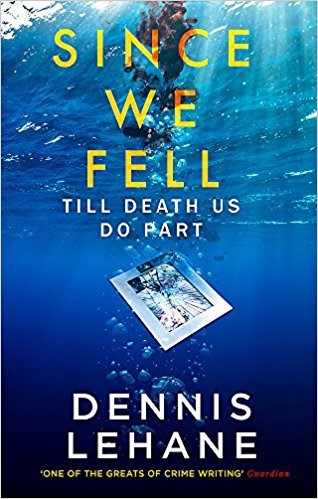
FRANKENSTEIN IN BAGHDAD by Iraqi author Ahmed Saadawi was published in the UK by Oneworld in February and shortlisted for the Man Booker International.
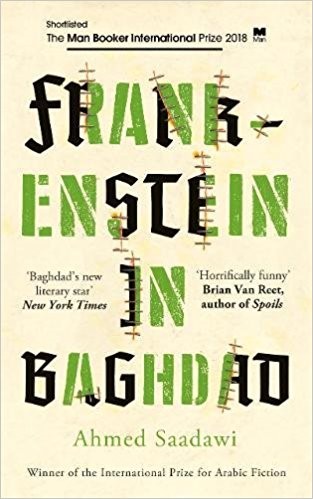
TRADITION is the first novel by New York Times bestselling author Brendan Kiely to be published in the UK, and was published by Penguin Random House Children’s in May.
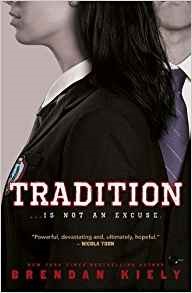
THE TUSCAN YEAR by Elizabeth Romer is a culinary classic, originally published in the early 1980s and has been reissued in the UK by Weidenfeld & Nicolson. It was published in July.
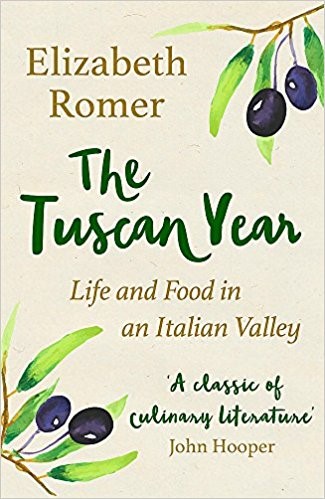
CAN YOU HEAR ME? by Italian novelist Elena Varvello was first published in English in 2017 and received an English PEN Award. The paperback, was published by Two Roads in June, and was Waterstones Thriller of the Month.
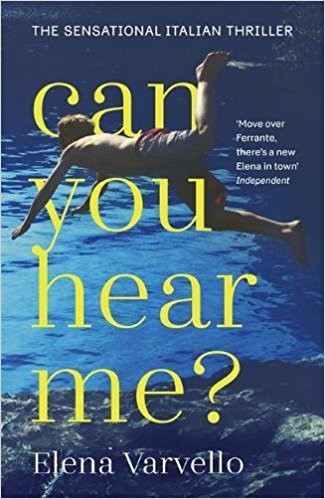
WHITE AS SILENCE, RED AS SONG is the debut novel by Alessandro D’Avenia, originally published in Italy in 2010, translated into over 20 languages and adapted for the cinema. The author’s first book to be translated into English, was published by HarperCollins US in September.
You can follow Charlotte on Twitter here.
Website: www.andrewnurnberg.com
Comments
Sarah
Sarah Pearse lives by the sea in South Devon with her husband and two daughters. She studied English and Creative Writing at the University of Warwick and worked in Brand PR for a variety of households brands before following her passion for writing.




